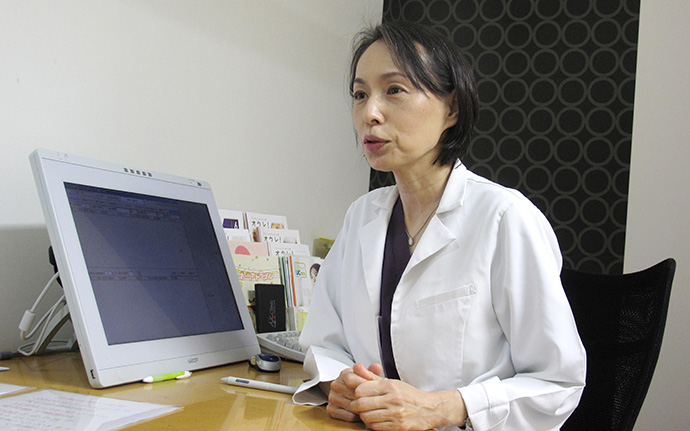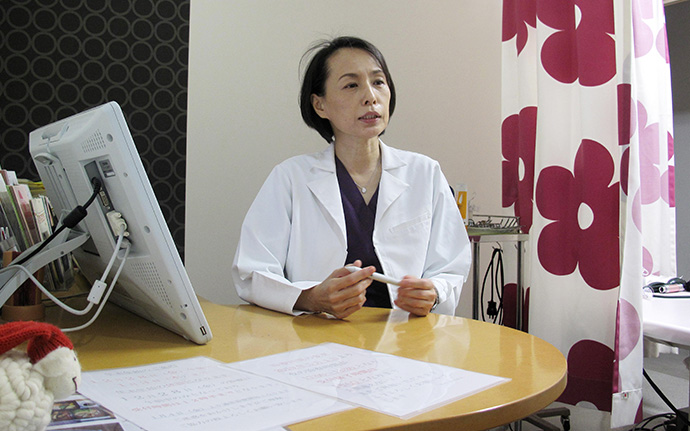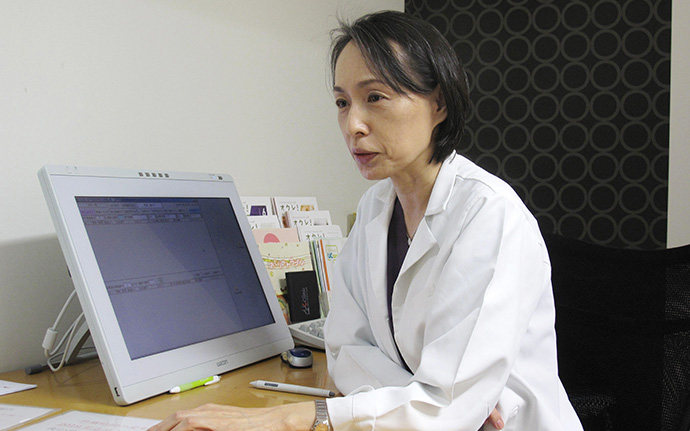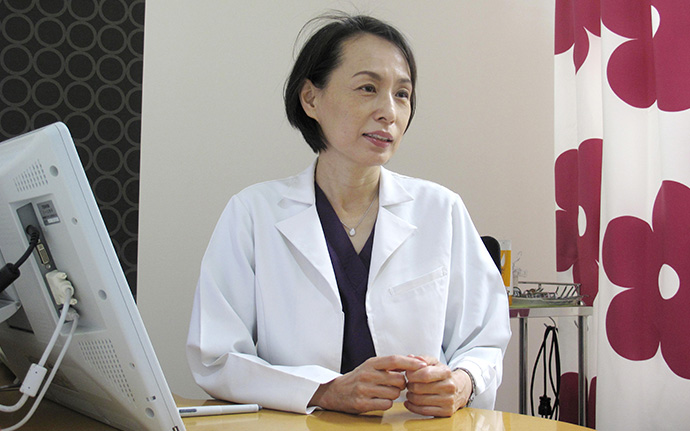
Pregnant women are prone to constipation, which can be listed as one of the possible causes of hemorrhoids. In the first trimester of pregnancy during which morning sickness starts, many pregnant women cannot eat rice, which is considered to lead to constipation. In the later stages of pregnancy, pressure on the bowels increases with expansion of the uterus; therefore, pregnant women are physically prone to constipation. Pregnant women with difficult defecation must take precautions not to strain because straining worsens hemorrhoids. Since the fetus continues to grow, it is important to continue routine lifestyle habits, e.g., eating normally, getting off public transport one stop earlier than needed to walk to work or home, and using stairs.
While taking dietary fibers such as fermented foods and seaweed is recommended, it is important to eat a balanced diet. It is also recommended to mix some barley into the rice or to put kampyo (dried gourd shavings) into tamagoyaki (omelet). For persons who are restricted by time constraints, it is also recommended to add nori (seaweed) to Miso soup or natto (fermented soybeans) to a soup. Since it will be difficult to continue strenuous exercise and diet therapies, it is important to "continue simple daily habits" doing moderate exercise and eating moderately.
It is recommended to consult a physician about the use of drugs for hemorrhoids during pregnancy. There may be no problem with the application of OTC ointment or cream medications for topical use. However, some people may develop eczema or allergies; therefore, caution should be exercised. If any such abnormality occurs after using an OTC drug or if there is no alleviation even after using such a drug for about one week, consult a specialist. However, if anal bleeding occurs, see a doctor immediately.
Steroids may be used in the acute phase; in such cases, there may be no problem if topical steroids are used only for a short period of time.
However, long-term topical steroid use is not recommended. This is not recommended not only for pregnant women but also for all patients. All patients including pregnant women must avoid using steroids over the long term.
Most patients visit our proctology clinic, presenting with symptoms in the anal region, and constipation is the cause of such symptoms in many cases. Many patients who visit our clinic due to constipation complain of abdominal bloating or distension. It is difficult to generalize about when a patient should visit a hospital due to constipation in regards to how long it has been occurring. Some people feel no discomfort even if they have no bowel movement for about one week; therefore, the appropriate timing for consulting a physician may differ according to individuals. There are various causes of constipation, including bowel diseases.
Colonoscopy examination is recommended for patients who are suffering from sudden onset of recurrent constipation or diarrhea, who have thin stools, or in whom persistent bloating or constipation is not alleviated. However, pregnant women cannot receive a colonoscopy.

Needless to say, drugs have no meaning unless they are used properly. Some people have diarrheal stools by taking laxatives because they assume that it is good to evacuate even diarrheal stools. However, this is incorrect. It is also not good to take a laxative as part of a diet. Such laxative use will ultimately have a detrimental effect on the anal area and functions. Persons who have watery stools, regularly taking laxatives over the long term, misunderstand that they have constipation if they have a slight sensation of inadequate defecation. An ideal bowel movement is that stools as soft as toothpaste are evacuated smoothly, with a sensation of urgency to defecate. At our hospital, the "Bristol stool form scale," which is an indicator for the form of human stools, is used to give an explanation to patients. Refer to the scale for understanding ideal stools.

According to my experience, the probability that patients with constipation have hemorrhoids appears to be high. Constipation is a major cause of hemorrhoids. However, this does not mean that hemorrhoids develop in all patients who are suffering from constipation over the long term. Hemorrhoid swelling may occur suddenly due to straining during defecation; therefore, it cannot be generalized that there is a causal relationship between the duration of constipation and the development of hemorrhoids.
It is recommended to consult a physician if perianal swelling or pain is noted. People who have anal bleeding or who have tested positive for occult blood in a mass stool screening must consult a physician. On the other hand, some people do not decide to undergo a detailed examination at their own discretion, assuming that the stool test showed positive because they have hemorrhoids. However, this is a mistake. People who tested positive must visit a medical institution.
Procedures for constipation in patients with hemorrhoids are basically the same as routine treatment for constipation. However, if difficult defecation causes rectal blockage, resulting in anorectal swelling, enema or disimpaction will be performed. As pain cannot be relieved without the removal of stools in the anal canal, it is recommended to visit a proctology clinic.
